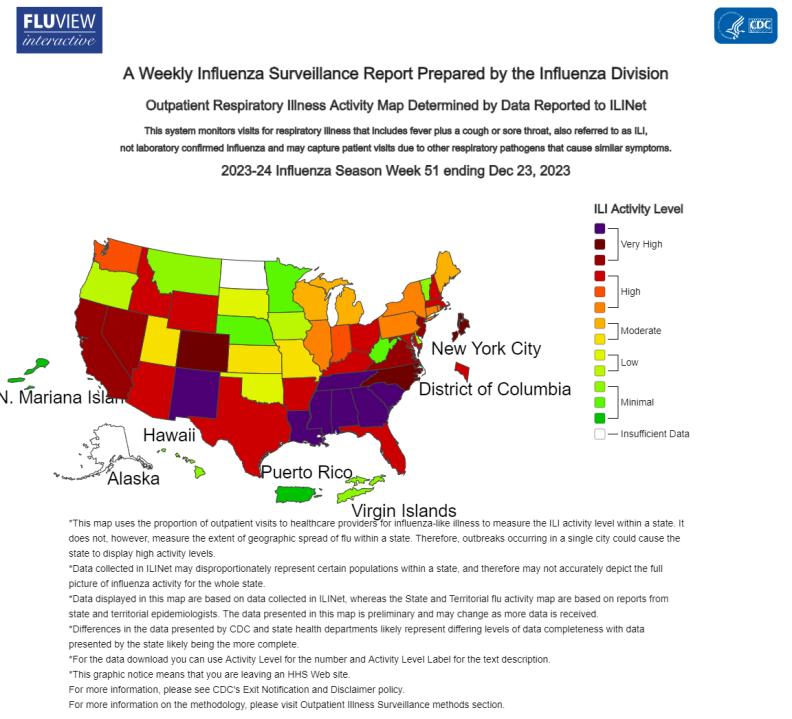Stopping the spread of flu as kids return to school
PORTSMOUTH, Va. (WAVY) — The hustle and bustle of the holidays is making way for the coughing and fevers of the new year.
The spread of influenza is currently high in Virginia, and doctors predict it will only get worse as kids head back to school this week.

Waiting rooms are full at Urgent Care centers, where patients are presenting with post-holiday coughing, sneezing, headaches and fevers.
“This week has been much higher in terms of influenza this week than last week,” said Dr. Trissana Emdadi with Patient First in Virginia Beach. “I think it’s just we’re hitting flu season.”
Patient First reported a 25% increase in upper respiratory illnesses such as COVID, RSV and Flu over the last week.
Sadly, state officials also reported last week that a child in the Eastern region died from complications of the flu.
“We are incredibly saddened to reach this milestone, but it is a reminder that flu is still influenza infection can be very severe,” Dr. Melissa Virah of VDH told our sister station WRIC.
Due to privacy laws, VDH would only say the child was between 5-years-old and 12-years-old. They would not say whether he or she had received the flu vaccine, but according to VDH only 27% of people in the Commonwealth have rolled up their sleeves this season, which worries some about the possibility that more people will be at risk for death or severe illness.
“School kids go to daycare, go to preschool (and) you can see them get sick pretty frequently, but it’s not to be ignored.” Viray said.
As kids head back to school later this week, doctors recommend these tips to help stop the spread:
Keep them home if they have a fever
Teach them to cough and sneeze into a tissue or their arm
Wash hands frequently
Get vaccinated
Emdadi also stressed the importance of parents being good role models.
“Making sure you’re washing your hands before you eat and drink,” Emdadi said. “If you are using a tissue, then going and washing your hands. It’s much more likely for them to mimic your behavior.”
It’s also important to pay attention to the signs of serious illness.
If you child has trouble breathing, is not eating or drinking, or has a persistent high fever seek medical help right away.
Doctors at CHKD define high fever as 104 degrees or higher in any age child — or for infants 3 months or less, a fever of 100.4 or higher is of concern.
For the latest news, weather, sports, and streaming video, head to WAVY.com.

